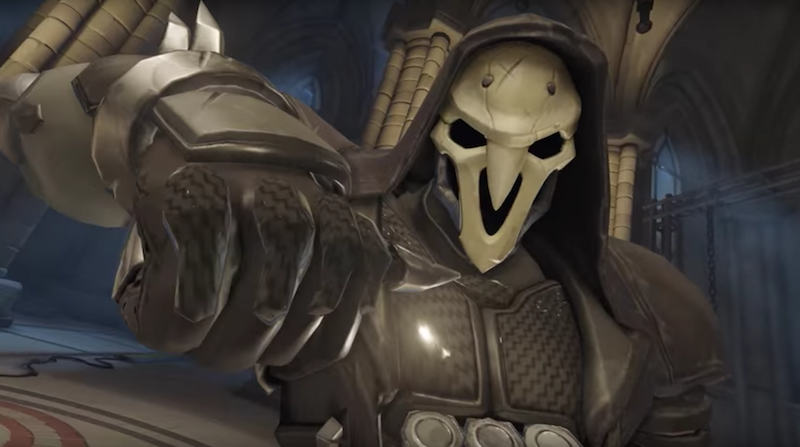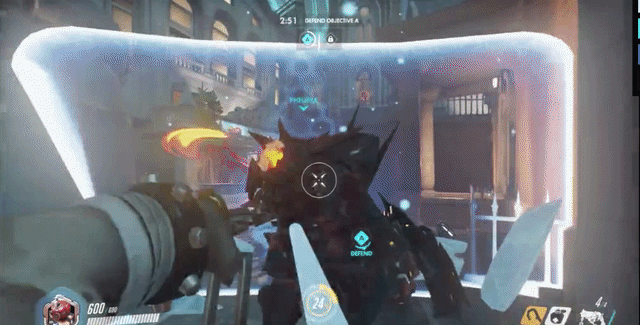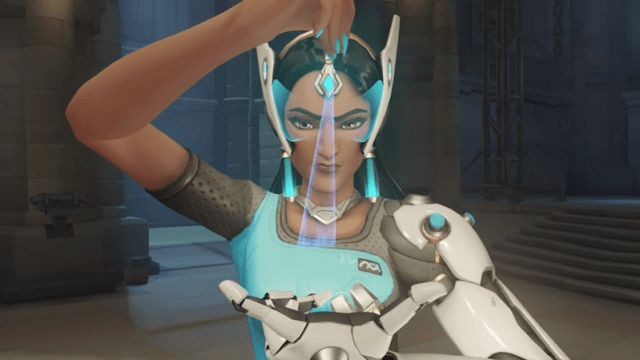Yesterday, Blizzard announced that an official Overwatch League is in the works. It’s an exciting moment for a game that, only six months post-release, already offers million-dollar tournament prize pools.
Overwatch, though, is a volatile game. Today, Overwatch Game Director Jeff Kaplan said on Battle.net that hero-balancing will continue to be kinetic, a model that, as we’ve seen recently in esports like League of Legends, can prove unsettling for players and investors.
In an interview at Vanity Fair’s New Establishment Summit, Bobby Kotick, Activsion Blizzard’s CEO, made mention of an upcoming Overwatch esports league. “What we’re doing is creating professional content. So we’re organising around teams and leagues. You will have the Overwatch League, which will have a certain number of teams,” Kotick said on a panel, according to TheStreet.
Last month’s Overwatch Open tournament attracted 280,000 viewers on TBS, a promising number when the Group F Counter-Strike: Go finals, also on TBS, attracted 265,000. Clearly, the desire for an Overwatch League is there. But how it will be structured and funded is unclear — Kotick added that the teams will be, in part, owned by professional and endemic sports teams, much like League of Legends’ pro teams.

Overwatch
Also like League of Legends, Overwatch will continue to face potentially disruptive balance shifts, which for the more established esport LoL, has proven difficult for funders and players to handle. Today on the Battle.net forums, Kaplan responded to a question about whether “the current effort toward hero balance will completely erase or dissipate” less strategic Overwatch heroes. Essentially, the commenter is concerned that, with Overwatch‘s frequent patches, professional players must constantly tweak their strategies and skills to keep up with the ever-changing metagame.
Currently, the Overwatch heroes Symmetra and Torbjorn are considered, by some, to be “troll” picks, since more serious players have difficulty making use of them.
Kaplan’s response was telling: “Let’s say that we all agreed that all of the heroes were perfectly balanced (just pretend with me), even if we touched nothing, eventually the balance would shift over time due to evolving playstyles, strategies and meta-trends.” Traditional sports, like soccer and hockey, he said, have static rules, but “leagues have had to make minor tweaks to the games to keep them fun and balanced over time.”
He went on:
We wrestle with the issue that players get very upset at us when they perceive “the meta is stale” and certain heroes are not viable. Yet it’s also very disruptive to the playerbase for us to make changes. It’s a bit of a Catch-22 but we do our best to responsibly look at all heroes all the time and make sure nothing is terribly unbalanced or worse, un-fun.
It seems that Overwatch‘s hero balance will continue to change, if for nothing else, to shake up the “meta.” For casual players, balance changes can be fun, keeping the game fresh and replayable. For competitive players, and especially players whose incomes depend on excelling at Overwatch, consistent balance changes can mean waisted hours sharpening a skillset that, a week or two later, could become useless.
Blizzard representatives declined to comment for this article.

Overwatch
Recently, League of Legends faced a similar problem. In August, a prominent League of Legends team owner clashed with Riot co-founder Mark Merill over, in part, the game’s frequent patches that changed the meta and what that means for its esports league. A recent LoL patch had disrupted the competitive metagame shortly near the end of the esports season. This prompted Team SoloMid owner Andy “Reginald” Dinh to comment on how the game’s volatility made it a tough investment: ” Many people don’t understand that the specialised skills which LCS [League Championship Series] players practice don’t really carry over from one patch to the next,” he said.
It “knocks everyone back to the starting point. . . Huge patch disruptions in playoffs results in unsatisfying results and lower-quality gameplay,” he added. These patches can skyrocket pro LoL players’ stress levels and increase their odds of being cut from teams — their source of income.
Also as a result of LoL‘s patches, Dinh diversified his investments with other games. Several other esports-involved games, including Counter-Strike, have been facing the same issues: frequent and disruptive patches make investment in a volatile game’s esports league potentially unattractive.
How Overwatch’s upcoming league players and investors will handle the game’s shifting “meta” will be interesting to follow. In the meantime, Blizzard will be tweaking Symmetra and Torbjorn for competitive play — changes that will surely make watching tournaments more exciting.

Comments
9 responses to “Overwatch’s Upcoming Esports League May Struggle Against Disruptive Patches”
Smash Bros has faced the same issues, I think. The way it’s cuddled up to the competitive Smash scene hasn’t been as fruitful as Nintendo would have probably liked.
I love Smash, but it’s in a strange middle ground. I can’t necessarily spend them time to enjoy it ‘seriously’ like I did (I all but missed the Melee craze, I didn’t have a Gamecube) nor can I find anybody to knock about and just play socially anymore.
What state/suburb are you in? I’m sure I can put you in touch wit some people if you’re up for some games.
They can’t just run e-sports like regular sports and not make any major changes until the end of the season? Game seasons are much shorter than their real world counterparts so surely they could find a time balance which keeps the game fresh without causing disruption to the pros.
Considering a number of competitive E-sports already do this (Dota 2) and Blizzard themselves (They always put off major tuning changes for classes between PvP seasons) I don’t see this being a big issue at all.
So just time your patches to drop after major tournaments? What’s so hard about that? Or establish a tournament build that doesn’t get patched as often, but rolls in cumulative patches from the public build after major league finales. Like, having PTR for very frequent patches, public build for regular patches, and tournament build getting half-yearly patches or something.
Hopefully it means some time soon that Mei will get nerfed into the ground instead of constantly being buffed. She’s the most ridiculously OP hero in the game right now. It’s pretty much a case of if your team has a good Mei on it you win, especially if the enemy team doesn’t have one!
Nope Geni and Hanzo are currently the most broken heros still.
Genji still has no proper counter for him, and his deflect is complete BS witht he hit boxes for it. hanzos arrows are still way to large, he can switch arrows while the bow is drawn which is crappy and can jump when the bow is drawn as well.
Road hogs hook hit boxes need to be fixed as well. In reality blizzard will never ever be able to balance the game properly.
I’m pretty sure that if Valve can balance 112 heroes in Dota, Blizzard can balance 22 heroes in OW.
I don’t understand why every esport doesn’t follow Dota’s model – patches only drop after major tournaments.
This literally fixes every single problem. No uncertainty going into tournaments, and time between tournaments for players to familiarize themselves with the patch changes.